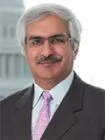- within Accounting and Audit and Strategy topic(s)
On February 24, 2015, Algeria's Minister of Energy announced
the adoption of Algeria's updated development program for
renewable energies. The program increases the targeted installed
capacity from renewable sources by 2030 from 12 gigawatts
("GW") to 22 GW, with a view to diversifying
Algeria's power production by increasing generation from
sustainable sources and preserving fossil fuel resources.
This new target emphasizes Algeria's significant solar
potential and takes advantage of the recent drop in production
costs for solar photovoltaic and wind power infrastructures, while
primarily satisfying domestic energy demand essentially through
three sources of renewable energy: solar photovoltaic power
(13.5 GW), solar concentration power (2 GW), and wind
power (5 GW). These new targets represent a nearly 400 percent
increase in the targeted installed capacity for solar photovoltaic
power and wind power, compared to the development program's
initial objectives in 2011.
In addition to installed capacity for domestic consumption,
Algeria's development program also targets up to 10 GW of
installed capacity from renewable sources for export purposes, for
which the Algerian government is seeking reliable partners willing
to provide financing for the projects as well as the required
interconnections with the Algerian grid.
Renewable power projects will be subject to a specific regime based
on a 20-year power purchase agreement ("PPA") with one of
the four distribution grid operators, all subsidiaries of the
state-owned Sonelgaz Group, and preferential regulatory feed-in
tariffs applicable to the produced electricity. Projects with
installed capacity of more than 1 megawatt
("MW") will be eligible on an "open-door"
basis. Producers will apply with the Algerian energy regulator, the
Commission de Régulation de l'Electricité et
du Gaz ("CREG"), for authorization to benefit from
the feed-in tariff. To qualify, producers must satisfy a number of
criteria, including holding an operation authorization and a
certificate of guaranteed origin for key materials, such as solar
PV panels, both of which will be granted or delivered by the CREG.
Finally, authorizations such as building permits as well as
environmental impact assessments will be required.
The preferential feed-in tariffs will be guaranteed for the 20-year
term of the PPA. Base tariffs will range from 12.75 Algerian dinars
per kilowatt hour ("DZD/kWh") to 15.94 DZD/kWh
(0.12 euros per kilowatt hour ("€/kWh") to
0.15 €/kWh based on prevailing exchange rates) for
solar photovoltaic projects. For wind power projects, the base
tariff will range from 10.48 DZD/kWh to 13.10 DZD/kWh (0.10
€/kWh to 0.12 €/kWh based on prevailing
exchange rates) depending on whether the installed capacity of the
production facility is over 5 MW or comprises between 1 MW and 5
MW.
Following an initial five-year phase during which the base tariffs
will apply according to the potential operating hours of the power
plant, the applicable feed-in tariff will be revised for each
project to adjust it, based on its effective operating hours during
the initial five-year phase. The feed-in tariff applicable to
facilities with a low production time will be increased up to 15
percent, while the feed-in tariff applicable to facilities with a
high production time will be reduced up to 15 percent, in
accordance with regulatory reevaluation rates.
The subsidized feed-in tariffs will be financed through a National
Fund for Renewable Energies and Cogeneration (Fonds National
pour les Energies Renouvelables et la
Cogénération), established by a 1 percent tax
levy on the state's oil revenues, and through other resources
or contributions, including a premium paid by end-users.
The liberalization of the Algerian power sector started in 2002,
with the passing of Law No. 02-01 of February 5, 2002, which
established principles governing the unbundling of the electricity
production, transmission, distribution, and supply sectors, and the
promotion of power generation from renewable energy sources. Even
so, Law No. 02-01 has not yet been fully implemented, and
despite the liberalization of the Algerian power production sector,
the Algerian state-owned electricity company remains the main, if
not the exclusive, actor in the Algerian power sector. Similar
dynamics exist in the renewable power sector where the Sonelgaz
Group is acting through its subsidiary, Shariket Kahraba wa
Taket Moutadjadida (Company of Electricity and Renewable
Energy).
A number of elements about the terms and procedures applicable to
renewable energy projects remain to be further detailed later this
year, including the forms and templates for the PPA, grid
connection, and grid injection agreements, which are required to
implement the preferential feed-in tariff scheme.
The content of this article is intended to provide a general guide to the subject matter. Specialist advice should be sought about your specific circumstances.
[View Source]


